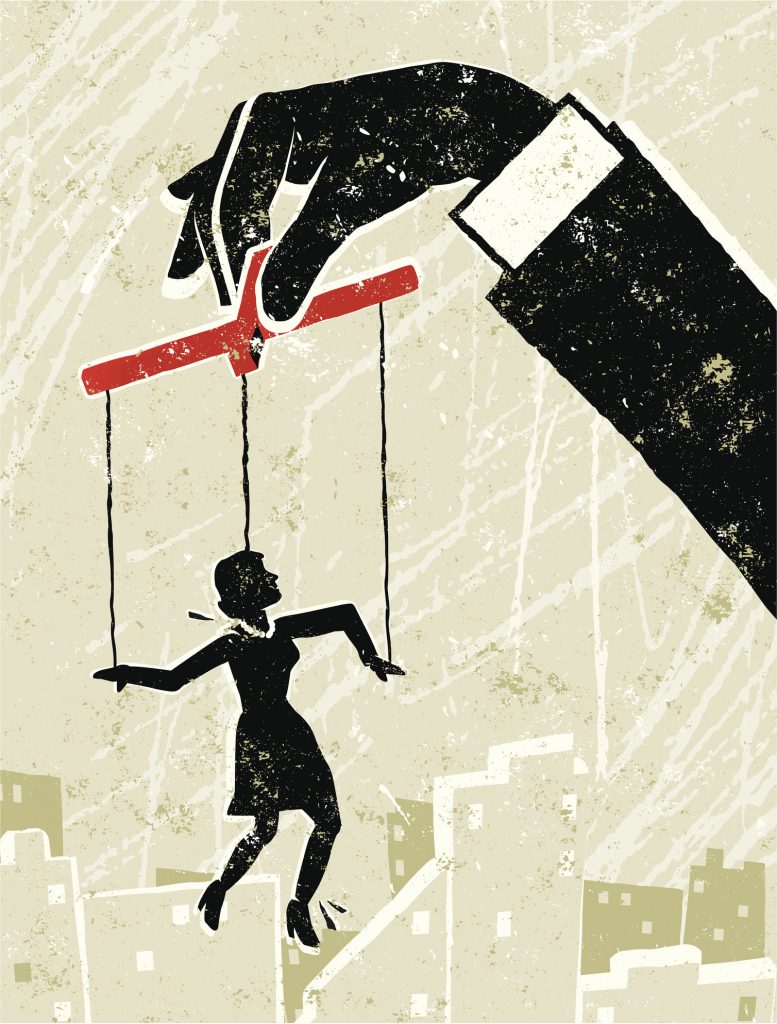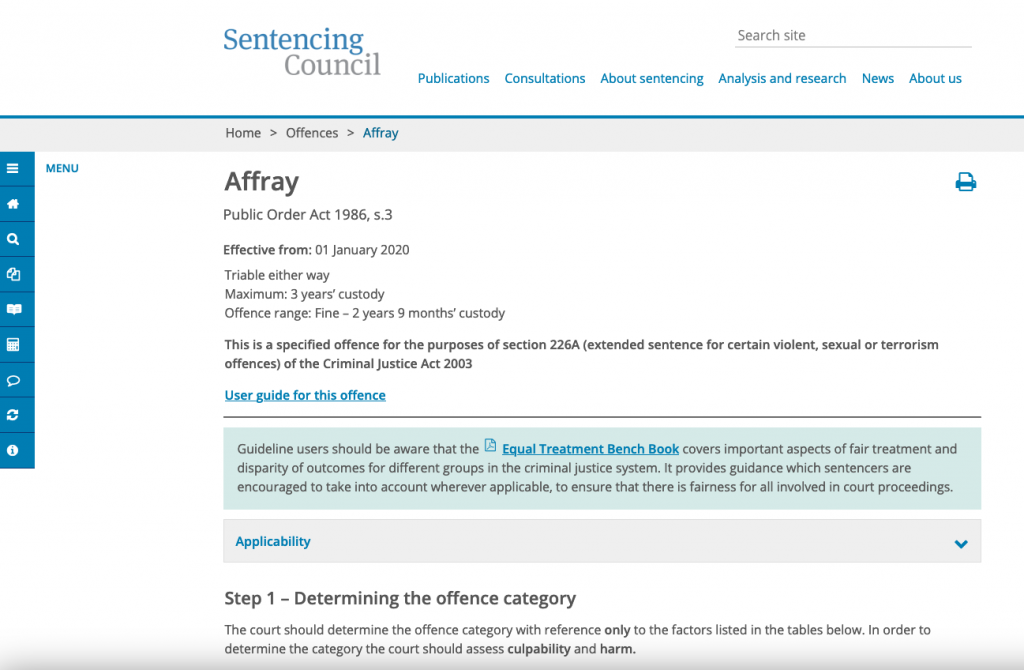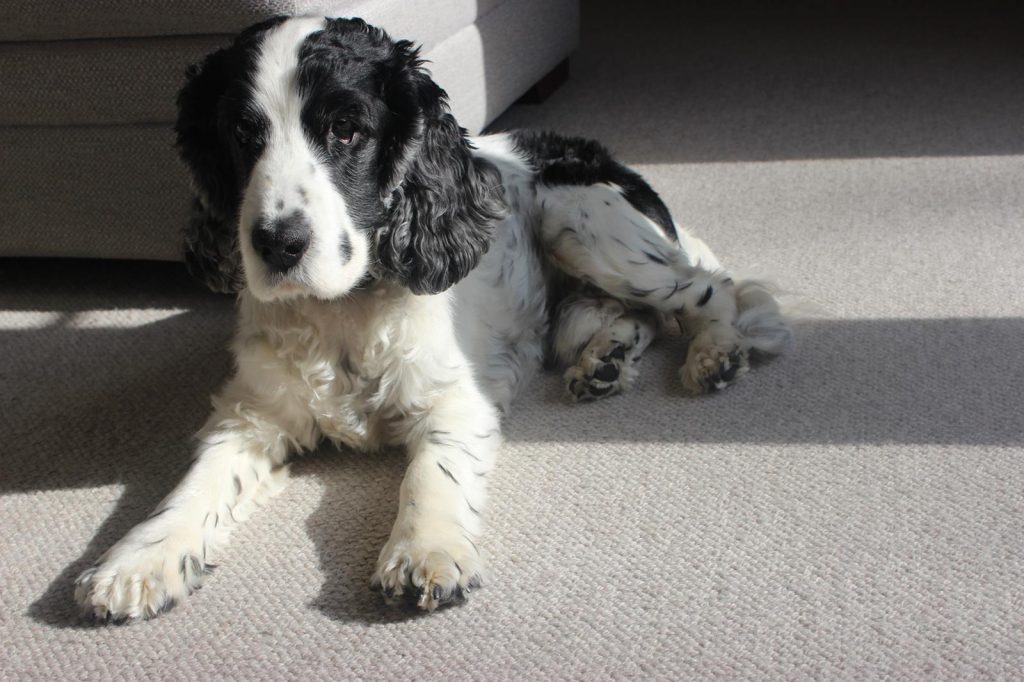Academic Corner: Interview with Robin Sellers
‘Those people who prey on vulnerabilities and exploit vulnerabilities are as close as you ever get to seeing evil people.’ – Robin Sellers

Robin Sellers, a senior lecturer on the GDL, has worked at the criminal Bar for 20 years (currently at 2KBW) where he has prosecuted and defended at all levels including rapes, murder, fraud, money laundering and fatal road traffic offences as leading and junior counsel.
He was recently appointed as a Recorder in Crime on the Western Circuit.
Congratulations on your recent appointment as a Recorder. How long have you been considering a career in the judiciary?
Well, I suppose I started thinking about it eight years ago. Some judges or people who I met, were asking me if I was interested in doing it. I began to think about it and thought I’d give it a go. In the application process, you have to show lots of different competencies. There are interviews and role-plays, and your goal is to get through the stages of the application process.
LIFE AT THE CRIMINAL BAR
Is there one case that has affected you more than others?
It depends on what you mean by affected me. I’ve done some cases which have been quite long, that take over your life. If you’re in a case for three months that can sometimes impact you quite a bit in terms of stamina.
So, stamina is the main issue, not necessarily being affected emotionally?
Yeah, not emotionally. I think when I was a bit younger in practice, I had a baby shaking case and that was quite heavy on me in terms of the subject, but I’ve got quite a thick skin to deal with these things. You have to keep things objective and slightly at arm’s length; otherwise, you don’t really do your clients or the system any favours. Quite a long time ago, I did some family law, and family law is quite emotionally draining because you see families breaking up. They become aggressive to each other but, you know, I’m a criminal lawyer, so I don’t see that much of that.
What was the worst piece of evidence you had to review when you were defending a client?
I’ve had a few defendants in a murder case, and whenever you deal with cases with death, you have to look at post-mortem photos, and they can be quite harrowing. You need to prepare yourself for those and have meetings with pathologists. So that’s quite graphic. I’ve also dealt with cases involving allegations of child pornography where you have to look at material for that. I suspect you do have to have a certain attitude to deal with the sort of fairly unpleasant material you’re going to come across.

When you are defending a client and reviewing that sort of material, does it make it hard for you to defend them?
It depends on what the defence is. I mean, if the defendant is saying that they weren’t associated with it, then there’s a separation there. You also have to be professional about it and keep a degree of objective detachment, which most lawyers are quite good at doing.
I read that you have a fair bit of experience working with a variety of witnesses, including vulnerable witnesses and young witnesses. What was one of the most challenging witnesses you had?
I dealt with a case a few years ago where I had an adult who very sadly had some kind of stroke and was quite nonverbal. That was a challenging case.
How did you end up extracting evidence from him?
We use what’s called an intermediary, which are sort of speech and language therapists who help to facilitate the communication with the witnesses. There were sessions with an intermediary, and then we came up with different strategies of how to communicate, which included using, for that particular witness, an iPad, and writing in diaries and things.
And is that evidence ever challenged based on the fact that it might be unclear?
Yeah, it can be, the defence may say ‘well, we don’t think that the evidence amounts to what the prosecution says it does’. We then test it, and it becomes a matter for the jury as to the interpretation of it.
What type of criminal would you consider to be the worst criminal?

This is a pretty difficult question. It’s difficult to compare different strands of criminality. I think one of the toughest things is when you encounter people who exploit relationships and abuse trust. That could be in the parameters of sexual offending in relationships or it could be in the realms of fraudulent activity. I find people who are exploitative in either of those fields are quite hard. Those people who prey on vulnerabilities and exploit vulnerabilities are as close as you ever get to seeing evil people.
Do your morals influence your advice to clients?
My morals don’t, but my ethics do, and I think there’s a difference between the two. Morals are very subjective, and ethics are more objective. We use quite a lot of ethical rules both to help protect us as people and provide us with a good sort of working system to be able to deal with what you would think would be moral dilemmas but aren’t, they’re ethical dilemmas. So though sometimes people believe lawyers are unethical, we’re not, we do have ethical codes. We probably would find the job very, very difficult without them. Morally, I don’t involve myself. I don’t have to because I can use the ethical codes to deal with it, and then I just give technical advice concerning the strength of the case. It means you don’t expose yourself to moral dilemmas.
I guess that wouldn’t necessarily change with your position as a recorder when you’re considering sentencing?
Yeah, quite right. Again, judges are bound by the law, so if we’re passing sentence on somebody, we have sentencing guidelines, which are set out by the Sentencing Council. They indicate to the judge what the aggravating factors of an offence are so we can compare crimes of the same type. One might be much worse than the other because of these aggravating factors, or one could be less severe because of mitigating factors. Some of the sentences are prescribed, but some of them are generic. You can use that to guide the gravity of offending more than anything else.

Do you think our legal system ensures everyone is treated fairly under the law?
I think it tries to. Most lawyers like to think that all the trials we’re involved in are fair and avoid discriminating people. I’d like to believe that we attempt to do that. Whether we manage it 100% of the time, I suspect not, and I don’t think any system is perfect. But I do generally see, when I look at my colleagues operating at work, people striving hard to deliver a fair system, both prosecutors and defenders.
What about the types of clients you frequently come across, do you think there is more of a systemic issue in terms of equality?
We sometimes hear about allegations of unfairness, possibly from other agencies. The police sometimes get criticised for apparent unfairness. If something like that becomes apparent, then you investigate them on a case by case basis. Sometimes it doesn’t necessarily look like it did when it started, so you have to be very careful about the sort of allegations that are made. Sometimes you come away and think ‘well, maybe that was somebody in a particular role operating in a biased way’ and then you try and address that.
ADVICE TO STUDENTS
For any of our students considering a career practising criminal law, what advice would you have to them?
I would say go into it with a very open mind. Realise that the criminal law can be an extremely rewarding career, but it has several challenges about it; from funding right the way through to the opportunities that are potentially shrinking with criminal law. To people who want to involve themselves, I wouldn’t say don’t do it. I would say, perhaps be a bit more adaptable, and also continue to look at other income streams in terms of different areas of law at the same time, so that you could spread yourself and spread the risk in terms of what you want to do. You could have another career or second income stream doing some parts of civil law or your practice so that you could earn some fees doing that, and then you could cross-subsidise if necessary.
What about any students who are concerned that criminal law might have an emotional toll on them?
It is a challenging profession, but you get a lot of support. In terms of somebody who is emotional – as opposed to some people who may think they’re not able to do that, which would be a great shame, because lots of people can bring really beneficial things to criminal law – if people are worried about the emotional side of it, the answer is to get some exposure in terms of work experience and see what lawyers deal with. You can decide after that. As well, have some courage that the senior members of the profession still go to work. We all seem to be able to operate under it. The ethical systems and procedures, which sometimes people think are a bit over the top, actually do protect us quite well. You become quite robust through your training and the answer is just to go into that with your eyes open and see if it’s something that suits you.
I have been struggling with that, I was helping an immigration barrister a couple of weeks ago, and I was reading over a factum, essentially someone had been deported and hadn’t seen his daughter in a couple of years. The way it was written pulled at my emotions, and I ended up sitting in a cafe crying. Mind you; I am nine months pregnant. So probably –
Not at your most robust! Well, I think that most of us are in this profession to help people. And so, if you are helping people, you can draw quite a bit of strength from that. You are making a positive difference, you may not win, and you may have to deal with the consequences of not winning, but that’s a slightly different question. Taking on somebody else’s problems and acting as an advocate for them is a really empowering thing. If you can do that, you will draw quite a lot of encouragement from it. As I said, how we practice and support each other is very important. I’ve always found the profession very accommodating. If I’ve ever been stuck with something or I needed some help, there are other practitioners who are willing to listen, lend support and give ideas. As a result, you draw support from your friends, your family and other practitioners.

Ultimately it is about what you feel that you can cope with. I have seen some practitioners say over the years ‘yeah, this is not for me’ and leave. Some of them were sort of compulsively nervous and felt that they were in the wrong place. Those people changed what they were doing in law and entered another field where they felt more comfortable and resilient. That does happen. It is a little bit of deciding where you fit, and then you find your equilibrium.
LIFE OUTSIDE THE BAR
Can you tell us a little bit about your life outside of work?

Outside of work, well I’m married. I have two children. One is at University, and the other is currently in A levels. I have a spaniel I spend most of my time with. I’m not very good at guitar playing, but I do try it quite a lot. What else do I do? I just, you know, enjoy seeing friends.
I like sailing, as well.
I’ve got a boat and spend lots of on the water, because that’s very different to being at work, and it makes a big difference to have something else to think about.

Quick-fire questions
What’s your favourite meal?
Ooh, curry. Yeah.
What’s one thing on your bucket list?
Bucket list. It’s to travel more. Yeah.
What does your perfect day consist of?
A perfect day? Socialising.

Many thanks to Robin Sellers for shedding light on his remarkable career at the Bar. We wish him all the best in his future appointment as a Recorder and hope he finds some time to travel and socialise with his friends and his dog, perhaps on his boat with some delicious curry!
Thanks also to Mel Dubé for this fantastic interview with Robin. Mel is a second year LLB student and a member of the Lawbore Journalist team. She is also considering a future in criminal practice.
